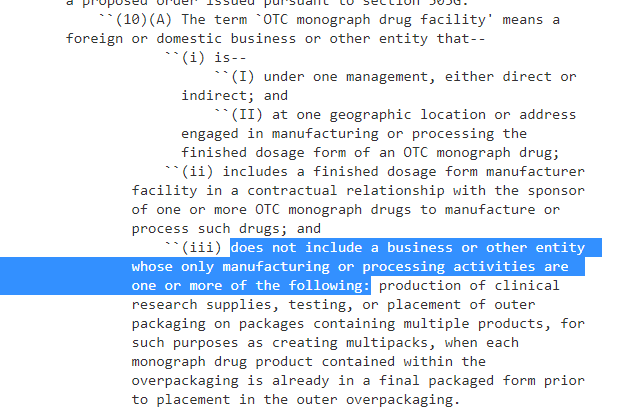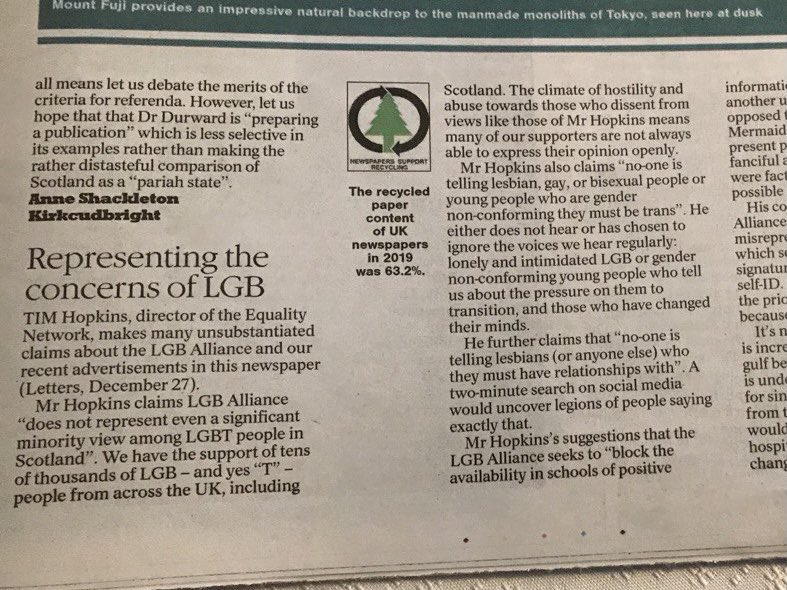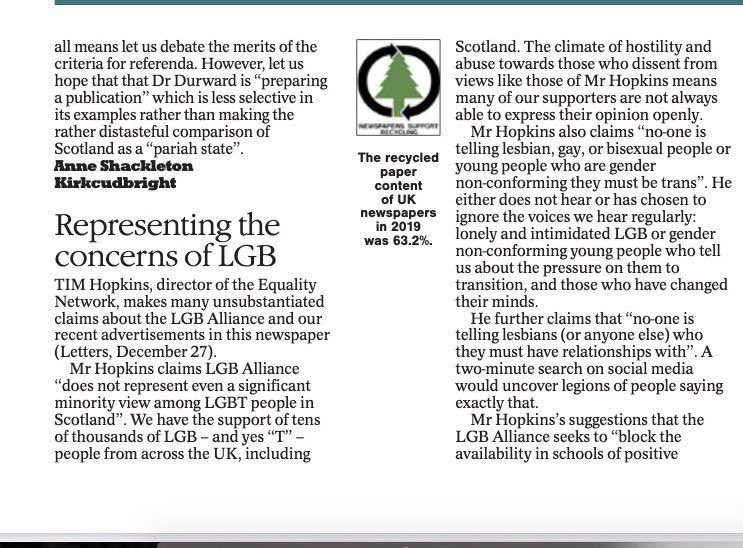https://t.co/JSNC0mN7h2
Alright, folks. You may have seen that the FDA was in a fight with distilleries last week.
Let's unpack what happened, why it happened, and why it's now resulting in some extremely unusual behavior by HHS.
Thread below. Follow if you're interested.
https://t.co/JSNC0mN7h2
It basically sounded like "no good deed goes unpunished by the government." Reddit's take:
https://t.co/N75y14ZSvb
So let's look at what did happen, and you can decide for yourself where the blame lies.
Hand sanitizer is regulated as an over-the-counter (OTC) product. Under that regulatory approach, entities which adhere to an FDA "monograph" may market an OTC drug without obtaining explicit FDA approval.
Here's the sanitizer monograph: https://t.co/OicqzGEhvF
So on March 20, 2020, FDA released a new policy intended to help alleviate those shortages.
https://t.co/MobkmU2g5F
This policy was commonly understood to primarily target distillers of alcohol.
This requirement is longstanding and typically applies to traditional drug manufacturers.
- it allows the FDA to know the identities of all companies that make drugs
- Helps FDA conduct inspections and safety surveillance
- Indicates which companies owe fees to FDA
These fees are used to help fund the FDA, and make up more than half of its overall budget.
- Application fees, assessed each time a company wants FDA to review a new drug or medical product, and
- Facility fees, assessed on an annual basis and used to offset the costs of inspections and routine regulatory work.
But never for nonprescription (OTC) drugs.
As a result, OTC companies had to register, but didn't have to pay fees.
March 20, 2020. That's when FDA released its guidance document.
A week later, on March 27th, Congress passed the Coronavirus Aid, Relief, and Economic Security (CARES) Act.
This is where things get interesting.
It also established a user fee program called the OTC Monograph Drug User Fee Program (OMUFA). https://t.co/A6ued6pmRo
Here's the relevant explanation from my writeup for AgencyIQ:
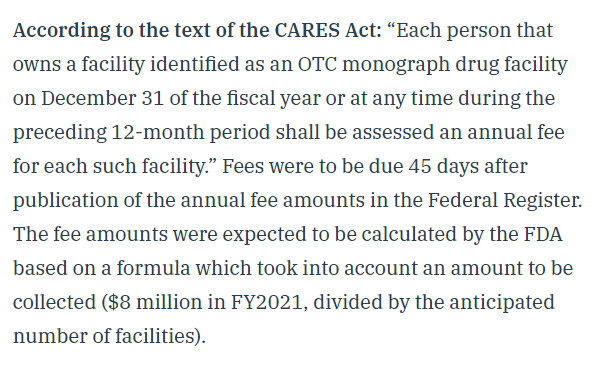
That changed on December 29, when FDA announced the OMUFA fees for FY2021: https://t.co/zkcfavN8xs
And because distilleries had been required to register, that would now include distilleries, too.
Some had even donated these supplies, meaning they would have lost even more $.
https://t.co/ekIkzjs3lf

This actually has a pretty simple answer: Congress.
Basically: Congress gives FDA a formula, and tells it to use the formula to determine the fees. (This formula is usually signed off by industry groups prior to passage, as it was here).
Those *do* exist for other user fee programs.
Given that it had 45 days to do so, that seemed like a possible timeline.
https://t.co/jM5Ox8BjVr

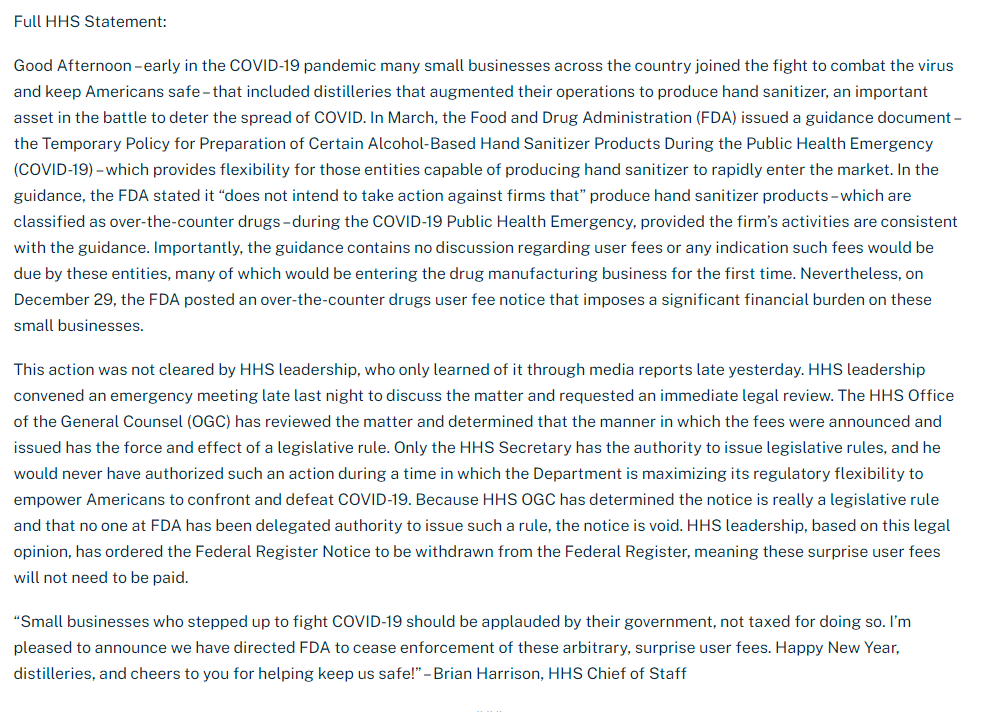
https://t.co/F1mqF1zZ07
Proof: https://t.co/ZflKfKtS6J
The order: https://t.co/TWIsTB3F8n
OTC groups I spoke with are... not pleased.
It applies a basic formula to determine what the annual fee should be by taking a base amount mandated by Congress and then dividing by the number of active facilities.
Alternatively, anything that HHS doesn’t like is “significant” and therefore a “legislative rule.”
The only online version I could find was here: https://t.co/DpaKdsQp24
You can read it here: https://t.co/TWIsTB3F8n
Folks, this is not how government normally works. Now, this isn’t the first time that FDA and HHS have been at odds in recent weeks…
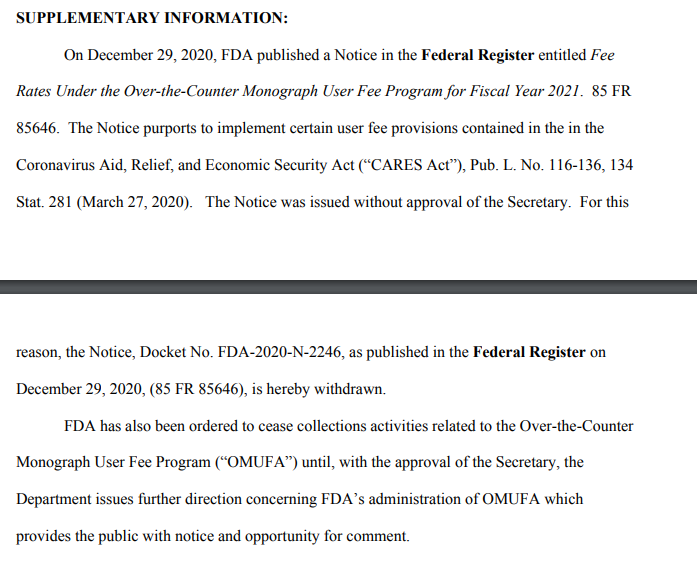
See my colleagues @DanDiamond and @DavidALim’s story: https://t.co/bf3E3oRAOc
So withdrawing them just punts the issue down the road.
- Public Health Emergency waiver
- First-time-filer waiver
- Small business waiver
Easy fixes that wouldn’t be difficult to implement and are common to other programs.
More from News
You May Also Like
Nano Course On Python For Trading
==========================
Module 1
Python makes it very easy to analyze and visualize time series data when you’re a beginner. It's easier when you don't have to install python on your PC (that's why it's a nano course, you'll learn python...
... on the go). You will not be required to install python in your PC but you will be using an amazing python editor, Google Colab Visit https://t.co/EZt0agsdlV
This course is for anyone out there who is confused, frustrated, and just wants this python/finance thing to work!
In Module 1 of this Nano course, we will learn about :
# Using Google Colab
# Importing libraries
# Making a Random Time Series of Black Field Research Stock (fictional)
# Using Google Colab
Intro link is here on YT: https://t.co/MqMSDBaQri
Create a new Notebook at https://t.co/EZt0agsdlV and name it AnythingOfYourChoice.ipynb
You got your notebook ready and now the game is on!
You can add code in these cells and add as many cells as you want
# Importing Libraries
Imports are pretty standard, with a few exceptions.
For the most part, you can import your libraries by running the import.
Type this in the first cell you see. You need not worry about what each of these does, we will understand it later.
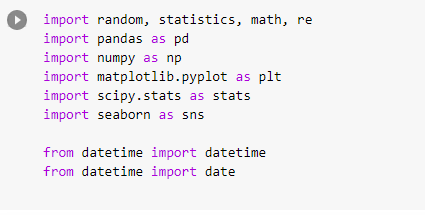
==========================
Module 1
Python makes it very easy to analyze and visualize time series data when you’re a beginner. It's easier when you don't have to install python on your PC (that's why it's a nano course, you'll learn python...
... on the go). You will not be required to install python in your PC but you will be using an amazing python editor, Google Colab Visit https://t.co/EZt0agsdlV
This course is for anyone out there who is confused, frustrated, and just wants this python/finance thing to work!
In Module 1 of this Nano course, we will learn about :
# Using Google Colab
# Importing libraries
# Making a Random Time Series of Black Field Research Stock (fictional)
# Using Google Colab
Intro link is here on YT: https://t.co/MqMSDBaQri
Create a new Notebook at https://t.co/EZt0agsdlV and name it AnythingOfYourChoice.ipynb
You got your notebook ready and now the game is on!
You can add code in these cells and add as many cells as you want
# Importing Libraries
Imports are pretty standard, with a few exceptions.
For the most part, you can import your libraries by running the import.
Type this in the first cell you see. You need not worry about what each of these does, we will understand it later.

👨💻 Last resume I sent to a startup one year ago, sharing with you to get ideas:
- Forget what you don't have, make your strength bold
- Pick one work experience and explain what you did in detail w/ bullet points
- Write it towards the role you apply
- Give social proof
/thread
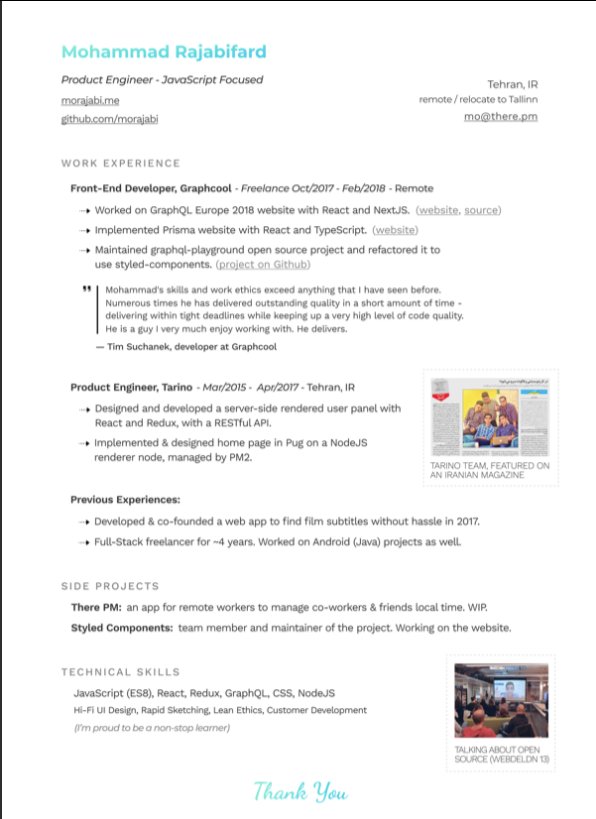
"But I got no work experience..."
Make a open source lib, make a small side project for yourself, do freelance work, ask friends to work with them, no friends? Find friends on Github, and Twitter.
Bonus points:
- Show you care about the company: I used the company's brand font and gradient for in the resume for my name and "Thank You" note.
- Don't list 15 things and libraries you worked with, pick the most related ones to the role you're applying.
-🙅♂️"copy cover letter"
"I got no firends, no work"
One practical way is to reach out to conferences and offer to make their website for free. But make sure to do it good. You'll get:
- a project for portfolio
- new friends
- work experience
- learnt new stuff
- new thing for Twitter bio
If you don't even have the skills yet, why not try your chance for @LambdaSchool? No? @freeCodeCamp. Still not? Pick something from here and learn https://t.co/7NPS1zbLTi
You'll feel very overwhelmed, no escape, just acknowledge it and keep pushing.
- Forget what you don't have, make your strength bold
- Pick one work experience and explain what you did in detail w/ bullet points
- Write it towards the role you apply
- Give social proof
/thread

"But I got no work experience..."
Make a open source lib, make a small side project for yourself, do freelance work, ask friends to work with them, no friends? Find friends on Github, and Twitter.
Bonus points:
- Show you care about the company: I used the company's brand font and gradient for in the resume for my name and "Thank You" note.
- Don't list 15 things and libraries you worked with, pick the most related ones to the role you're applying.
-🙅♂️"copy cover letter"
"I got no firends, no work"
One practical way is to reach out to conferences and offer to make their website for free. But make sure to do it good. You'll get:
- a project for portfolio
- new friends
- work experience
- learnt new stuff
- new thing for Twitter bio
If you don't even have the skills yet, why not try your chance for @LambdaSchool? No? @freeCodeCamp. Still not? Pick something from here and learn https://t.co/7NPS1zbLTi
You'll feel very overwhelmed, no escape, just acknowledge it and keep pushing.

